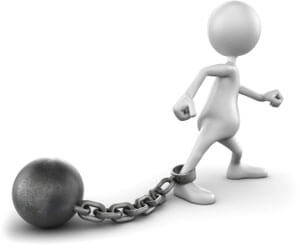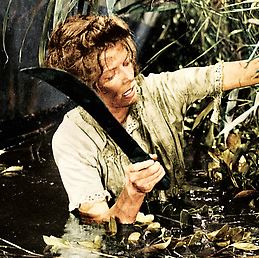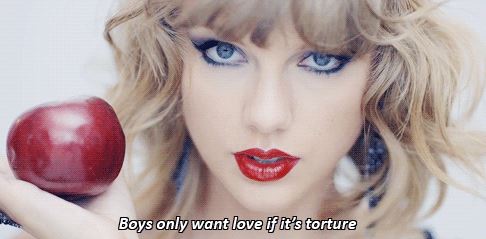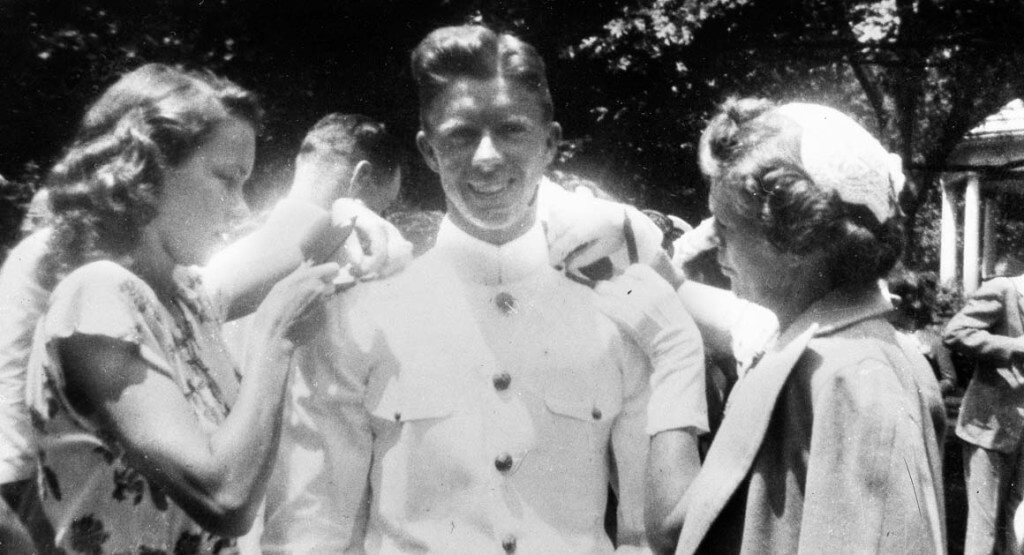Results of the 2016 New Hampshire Primary Election.
Total votes cast: 534,860.
Independent candidates Bernie Sanders and Donald Trump (who are running as Democrat and Republican, ostensibly) gathered 47% of the total vote in New Hampshire on Tuesday. Add in the votes for the life-long Democrat, Hillary Clinton, and the total reaches 65%.
What’s the point? Think about it. Less than 35% of the vote went to traditional GOP candidates.

28.3%Bernie Sanders 151,584
18.8%Donald Trump 100,406
17.8%Hillary Clinton 95,252
8.4%John Kasich 44,909
6.2%Ted Cruz 33,189
5.9%Jeb Bush 31,310
5.6%Marco Rubio 30,032
3.9%Chris Christie 21,069
2.2%Carly Fiorina 11,706
1.2%Ben Carson 6,509
1.7% Others 8,896
Consider this: in the 2012 New Hampshire Primary, voters cast 309,000 ballots — less than 58% of this year’s total (535,000). In that earlier primary Mitt Romney received 31.6% of the votes; Barack Obama, just 15.9%.
Here’s another way to make the point: back in 2012 over 80% of the ballots cast fell to traditional Republican candidates.
Historically, the New Hampshire Primary doesn’t do well predicting the eventual presidential winner, but it can be viewed as a canary in the coal mine for national trends in the electorate. Yesterday, a canary fell off its perch. The GOP is in trouble.
In the New Hampshire primary where less than 20% of the voters cast ballots for Democrats in 2012, nearly half did so in 2016. The increase in turnout for Democrats was astounding.

Faithful readers of the Billy Lee Pontificator should find it no surprise that its Editorial Board — in a unanimous decision — agreed to endorse Hillary Clinton to be the next president of the United States.
Hillary Clinton’s opponents are ideologues, every single one of them. They seem to be blind to the immensity, complexity, and diversity that is the United States of America. Their ideological filters drive them to say things that appear foolish, even crazy, to the many people who don’t live inside their own bubbles.
Rigid thinkers can really screw-up a country like the United States. Look at what the Bush family did to America. Every last one of them loves our country. But they are wealthy conservative-activists who during the past forty years pushed our intelligence community toward a strategy designed to make the world safer for billionaires and their friends. They seem to have forgotten about everyone else. It has been an unmitigated disaster.
To get their way they seem to have encouraged citizens to adopt patterns of rigid thinking — both on the left and the right — because somewhere someone convinced them — maybe in the intelligence community (who knows?) — that ideologues are easier to manipulate.
Whatever is fanning the flames of extremism on both sides of the nearly perfect 50/50 political divide, it hasn’t worked out so well, certainly not for regular folks. We need leadership with an appropriate vision of what’s fair and right in a democracy.
At the Billy Lee Pontificator we are mixed-economy advocates; we believe in Capitalism and Socialism competing side by side to provide best-in-class solutions for people’s aspirations.
It is well-known that we support limits to personal incomes as well as caps on the size of family estates, because quite simply, if we don’t have limits — and they can be very high limits and do no harm — a handful of families end up owning and running everything, like they already seem to do.
Without International limits — until the world agrees to make excessive possession of wealth a felony (not only in the United States, but everywhere) — billionaires will continue to pour their resources into their own families and bases of power; they will continue to distort and corrupt our democratic institutions and make life for average people a living hell, especially during recessions, which billionaires survive quite well, thank you.
Average people like myself and almost everyone I know expect to live in democracy and freedom; we expect a good living; we are endowed with inalienable rights by our Creator, the Declaration of Independence tells us. It’s why we cooperate to build a society, a country, a system that doesn’t emulate the jungle — where our ancestors lived, by the way, and didn’t do well.
Socialism by itself demoralizes innovators, some have said. It might be true (billionaires seem to work overtime to make it appear true), but (will anyone admit it?) Capitalism can diminish the lives of average, less capable people by humiliating them; it can drive them into un-gated neighborhoods, even ghettoes, and exclude them from educational and recreational opportunities and almost every other advantage of living that civilized society is supposed to provide.
Poor people have a tough time under the high-heels of Capitalism; most of the poor are children, who have no responsibility for their lack of the things which mark the lives of the privileged.
If anyone wants to understand the difference between the rich and the poor, they might abandon their comfort zone for a day to visit an elementary school in an impoverished neighborhood; then visit a school in a wealthy neighborhood. The difference will bring tears to the eyes of any human who has a loving heart beating inside them.
Let’s face facts. Most people in America are poor and below average. Even among the middle-class and the above-average almost no one can run a four-minute mile or invent the Internet or manage a company. Most people struggle to balance their budgets or even to understand how their government works. It has been this way in every civilized country since the beginning of civilization, and it always will be.
Despite our efforts to shield ourselves from the truth, the facts are that a huge number of people endure physical, mental, and emotional limitations that prevent them from securing a safe and comfortable life inside the United States. Don’t look around too carefully. People have stopped coming here.
More people are leaving the USA than are coming — at least from Mexico — according to the PEW Research Center. That WALL Trump wants to build might be used someday to keep people from fleeing. It could someday turn the USA into the world’s biggest prison.
Smart, energetic people earn rewards in every country in the world. The difference in America is that the advantaged live in an invisible world hidden behind walls and gates where anyone who is poor and disadvantaged and stupid enough to try to visit will find themselves blocked and disgraced; possibly even arrested.
The United States deserves to elect leaders who want to make America both fair and free; to make it a place where the advantages of being clever are good, but not excessive to the point of absurdity; where the disadvantages of powerlessness do not lead to humiliation and despair.
And let’s not close our eyes to the canary in the coal mine of New Hampshire. This past Tuesday Hillary Rodham Clinton received 57% more votes than the total of all Democrats combined four years ago. She received 95,252 votes in 2016; all Democrats in 2012: 60,659.
Another factor to consider, and some may find it disappointing: Bernie Sanders and Donald Trump cannot win a national election. Why?
Bernie is a self-proclaimed socialist. Some young people embrace socialism it seems, but it’s a bridge too far for many, probably most Americans. It’s a bridge too far for me and my Editorial Board.
We embrace social-medicine, yes, and other socialized programs like fire and police protection, water and sewer services; public schools; libraries and on and so on.
Certainly our financial system has become a sink-hole for the wealthy, who are known to have swallowed whole the earnings and retirement savings of many unsuspecting people unawares. Maybe reducing the risk to the public from the banking sector by setting up an honest system of public administration is a good way to go.
But we also know in our hearts that people like Bill Gates and the late Steve Jobs and Elon Musk can add excitement to our lives through innovation, advocacy of new technologies, and their fearless acceptance of personal risk. We defend the rights of exceptional individuals to create and sustain their businesses within the reasonable limits we advocate, which help average people to avoid becoming prey.
We need people who are willing to fight the frustrations posed by complex bureaucracies to build the modern structures of our cities, like Donald Trump says he does; or put IPhones into the hands of every citizen, like Steve Jobs once did.
But these innovators don’t build their businesses by themselves without securing a lot of help, both from government and the public. We don’t want these entrepreneurs to rule over us like feudal-lords. No way.

It can’t be all about the innovators. It just can’t be. It can’t be all about the owners who tell us when to work and when to punch-out and go home; who tell us when to eat and when to use the bathroom; or when we can use our cell-phones at work or what sites we can visit on the Internet.
It can’t be all about the owners, who tell us how to dress and behave; who monitor our every keystroke; who eavesdrop on every conversation. It can’t be about just our owners, who decide how small will be our paychecks and how meager our benefits; who decide how few will be our sick days and how short our vacations.
It can’t be about the very same people who force employees to sign non-compete agreements and non-disclosure promises in order to work; who demand that people relinquish their rights to intellectual property; who demand that their “subjects” surrender their rights to every idea and invention they come up with during their employment and for years after their employment ends.
We might as well be ruled by Kings and Queens, by Oligarchs and Dictators. We might as well be living in Iraq under Saddam Hussein, or in Korea under Kim Jong-Un.
North Korea is a beautiful country, if you live in the right neighborhoods. So was Saddam’s Iraq. So is the United States. We can do better than those two countries, where wealthy families ruled and still rule. We can do better than Iraq and North Korea.

Hillary Clinton — the only viable candidate who actually grew up poor; who is not and never will be a billionaire — is fully capable of leading the way, if we let her.
Civil Rights hero and Georgia Congressman John Lewis reminded Americans that Hillary Clinton stood with the poor and disadvantaged from her first day in politics.
Our votes shouldn’t entrench the power of the truly wealthy — the billionaires — who most ordinary people understand by now don’t really care about us.
A brave and free people do not have any good reason to increase the power and privilege of billionaires; not in this election; not this time, not ever.
Billy Lee
















